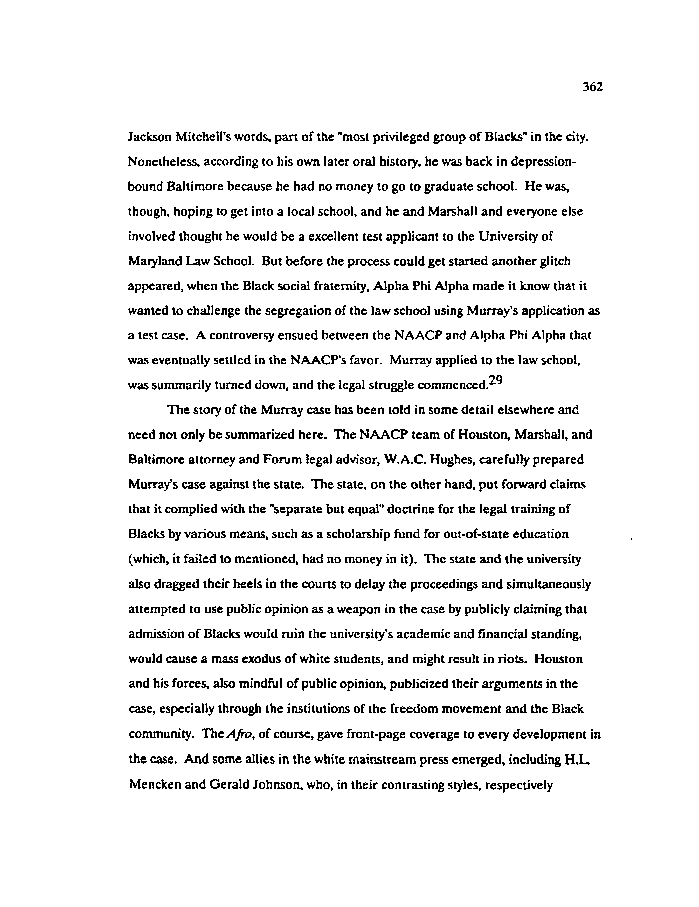|
362
Jackson MitchelFs words, part of the "most privileged group of Blacks" in the city.
Nonetheless, according to his own later oral history, he was back in depression-
bound Baltimore because he had no money to go to graduate school. He was,
though, hoping to get into a local school, and he and Marshall and everyone else
involved thought he would be a excellent test applicant to the University of
Maryland Law School. But before the process could get started another glitch
appeared, when the Black social fraternity, Alpha Phi Alpha made it know that it
wanted to challenge the segregation of the law school using Murray's application as
a test case. A controversy ensued between the NAACP and Alpha Phi Alpha that
was eventually settled in the NAACP's favor. Murray applied to the law school,
7Q
was summarily turned down, and the legal struggle commenced.
The story of the Murray case has been told in some detail elsewhere and
need not only be summarized here. The NAACP team of Houston, Marshall, and
Baltimore attorney and Forum legal advisor, W.A.C. Hughes, carefully prepared
Murray's case against the state. The state, on the other hand, put forward claims
that it complied with the "separate but equal" doctrine for the legal training of
Blacks by various means, such as a scholarship fund for out-of-state education
(which, it failed to mentioned, had no money in it). The state and the university
also dragged their heels in the courts to delay the proceedings and simultaneously
attempted to use public opinion as a weapon in the case by publicly claiming that
admission of Blacks would ruin the university's academic and financial standing,
would cause a mass exodus of white students, and might result in riots. Houston
and his forces, also mindful of public opinion, publicized their arguments in the
case, especially through the institutions of the freedom movement and the Black
community. The Afro, of course, gave front-page coverage to every development in
the case. And some allies in the white mainstream press emerged, including H.L.
Mencken and Gerald Johnson, who, in their contrasting styles, respectively
|

